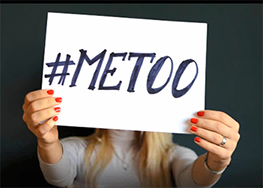In the wake of the #MeToo movement, more and more individuals are seeking redress anonymously, asking for court permission to file their cases with pseudonyms — John and Jane Does.
 According to research by Bloomberg Law, there were 52 anonymous harassment and discrimination lawsuits in 2018, up from 24 the previous year and from just 17 in 2016. So far this year, there have been 24 such anonymous filings.
According to research by Bloomberg Law, there were 52 anonymous harassment and discrimination lawsuits in 2018, up from 24 the previous year and from just 17 in 2016. So far this year, there have been 24 such anonymous filings.
Judges are generally given great discretion in granting or denying a litigant’s request to file suit anonymously. If anonymity is granted, the rationale is usually that the issues are highly sensitive, extremely personal or could result in physical harm.
Not every request for anonymity is granted. Some who had their requests denied include an Muslim gay man from Egypt who feared for retaliation to his family back home because of his homosexuality; a woman who alleged she was drugged and raped at a New York Toyota dealer and afterward dealt with harassing comments about her body and Indian accent from co-workers and even her alleged assailant; and a woman who had explicit photos of her shared in her workplace.
